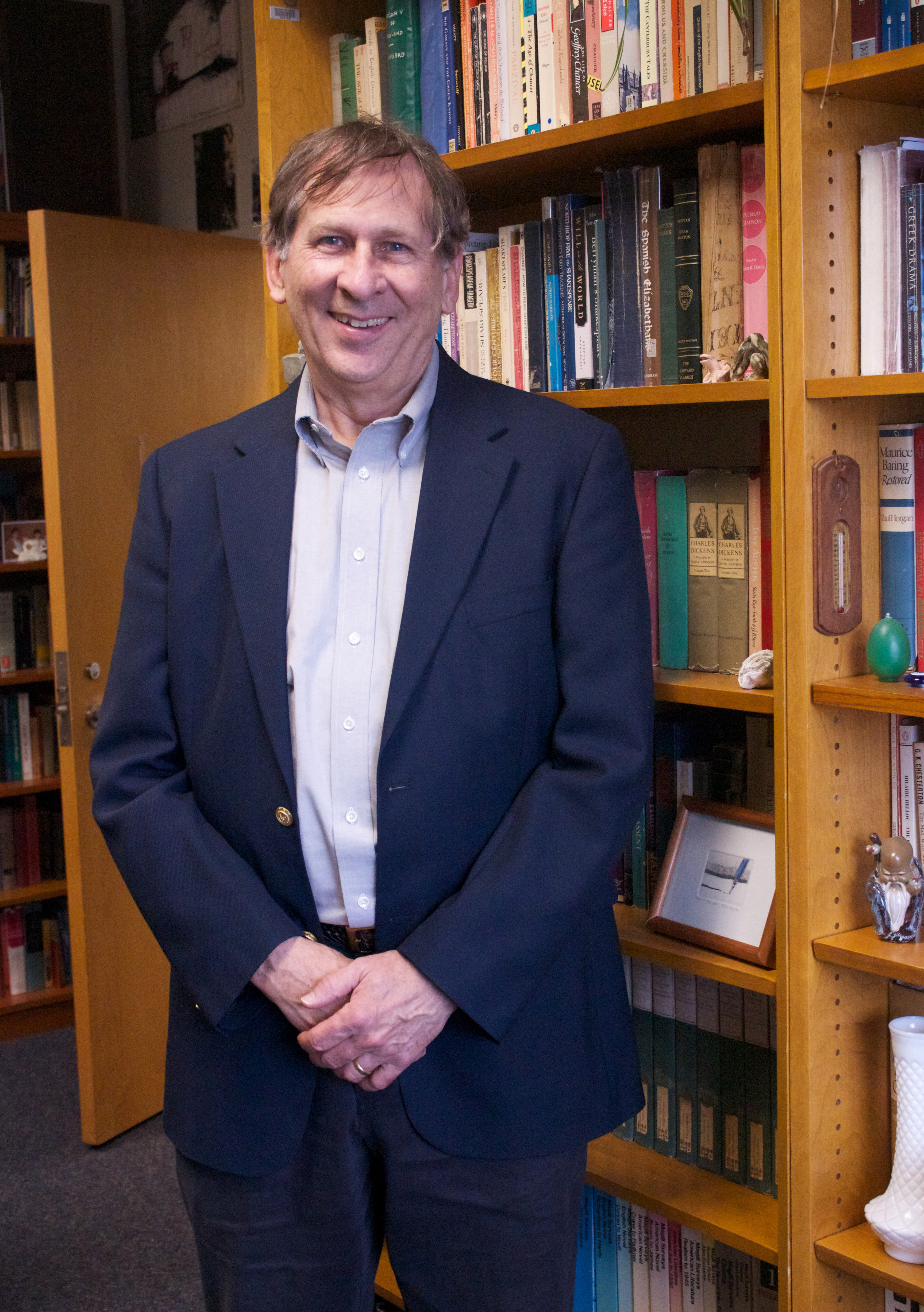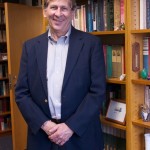

By Mackenzie Clark
Andy Anderson, dean of English, never intended to become a teacher.
After growing up in a still-segregated Lawrence, Kan., school was far from Anderson’s mind when he first entered college at the University of Kansas.
“I was much better at protesting than attending class,” he said. “I remember when I finally got my last F, and they told me I was not needed on campus anymore, writing an appeal and I argued that I was sure I could do the work if I went to class, but they decided that I should go somewhere else to prove that.”
Anderson studied at Baker University on a pre-ministerial scholarship, originally intending to become a Methodist minister, but his plans changed.
“[Becoming a teacher] was really not by plan,” he said. “[…] I think I’d always had it, maybe, in the back of my mind, going into something like that. […] I don’t know if it was really a very well thought out decision, so much as it was sort of something I fell into, and it appealed to me.”
Anderson went on to teach English and Latin, first in high schools, then at the college level. He credits his teachers with his eventual decision to teach.
“I think when I was at KU and even when I was at Baker, somewhat, I had faculty that impressed me, that made a difference,” he said, “and it seemed like something I could do. I would be a lousy salesman, I couldn’t market anything, and […] it’s maybe more annoying what I was probably not cut out to do.”
Today, Anderson is still serving as dean of English, although he originally just volunteered to take over the interim position when his predecessor retired.
“It has never been a goal to be in administration,” he said. “This is not what I intended to do with my life, and I still frankly have to say I think I enjoy the classroom more than I enjoy being an administrator. I’m fortunate that I have – I think she must be the best assistant one can have.”
He is referring to Birgit Love, administrative assistant.
“Working with [Anderson] is very rewarding,” Love said. “He is a very capable and engaged administrator whom students, faculty and fellow administrators like and respect and call on for advice. One of his strongest points is his compassion. My responsibility is to support him and our English and Journalism Division faculty in every way I can. Andy is not a micro-manager, which makes my job easier and adds to my job satisfaction.”
Anderson said that mechanics of budgeting, managing resources, and dealing with day-to-day issues that arise take up a lot of his time. In addition, he teaches World Masterpieces (ENGL 250). In his class, he almost always turns back to Homer’s Odyssey.
“Probably everyone would assume my favorite book is ‘The Odyssey,’ by Homer, and I have taught that certainly every semester for about 30 years, twice, three times a year,” he said. “So that’s probably the book I know best, and it is one that I find sort of a perpetual renewal in; there’s always something new there.”
Anderson said that his favorite book is the one he is reading.
Other materials studied in the course include Ovid’s “Metamorphoses,” Dante’s “Inferno,” and William Shakespeare’s “Hamlet.” He ranges to cover Virgil’s “Aeneid” to the more modern Christopher Marlowe’s “Doctor Faustus.”
“Studying with Professor Anderson was one of the most memorable experiences of my college career,” said Clark Neal, student. “His spirited approach to education liberates his students, inspiring intellectual creativity and an ambition to explore the English language as fine art.”
Neal and Joshua Pack, student, both took Anderson’s World Masterpieces course in fall of 2011.
“He is an awesome teacher who really knows what he’s talking about, and he makes classic literature enjoyable and fun, and does a great job of relating it to our lives today,” Pack said.
Anderson rarely brings up fishing in his class, but he loved fishing with his father in Minnesota growing up.
“One learns a lot fishing, I think,” he said. “[…] It was one of those strange experiences that led to lots of interesting conversations, like, ‘You can’t catch a fish if your hook’s not in the water,’ those kinds of profound realizations. […] You learn to look at water, and see the sunlight. You listen a bit differently, I think.”
Anderson has two daughters and a son, all of whom have worked at the Billington Library. He credits his wife, Kathleen, as the reason he holds his current job.
“I don’t exist without her,” he said. “She runs my life. Actually she’s probably why I’m an English teacher, and why I keep up with everything. And in fact, probably, I wouldn’t be here at the college if it weren’t for my wife. In fact, almost assuredly. […] She pretty much saved me and kept me moving.”
After years of studying literature and poetry, Anderson finds a deeper meaning to ponder in places where many people wouldn’t.
“I think probably, actually something my students do know, they may not have really thought about it, is that I find almost everything interesting,” Anderson said. “In fact I had a professor who said that the definition of a dull person was someone who found everything interesting. And there’s some truth to that. I’m sure my students just assume I’m distracted and wandering, because almost anything can raise a significant point, I think.”
Anderson said that rather than try to get through 20 or 25 books in a semester, he’d prefer his students get deep into the assigned reading. He chooses what he considers to be outstanding examples.
“There’s so much to study, and then there’s the immediate realization that isn’t enough time to study it,” he said. “So in World Masterpieces, for example, time keeps going on and great things keep getting written, and you can’t possibly read all of them. I think we’re often tempted to just put together a huge list of books. […] If a student can have the experience of a really good book, you maybe don’t need to cover all of them.”
Contact Mackenzie Clark, editor-in-chief, at [email protected].





















